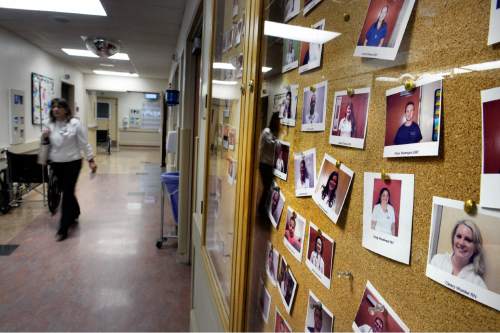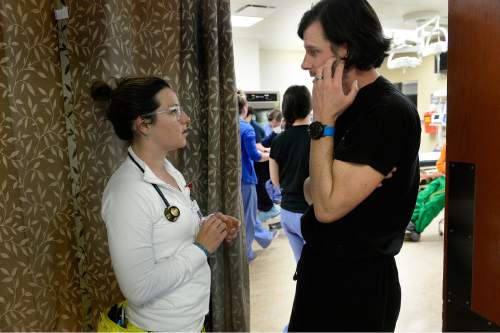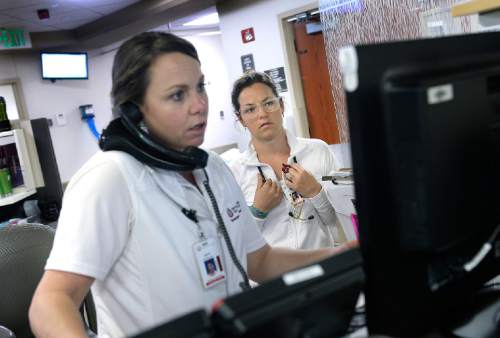This is an archived article that was published on sltrib.com in 2015, and information in the article may be outdated. It is provided only for personal research purposes and may not be reprinted.
The United States will need half a million more nurses in the next decade as baby boomers age and hospital workers retire.
But Utah's flagship university might be unable to provide much help.
The University of Utah's nursing school in recent years has turned away at least 40 percent of its qualified applicants because it does not have enough professors to teach more students, said Patricia Morton, dean of the U. College of Nursing.
"We don't have enough faculty, and we don't have an adequate budget to hire more faculty," Morton told the U.'s board of trustees at a meeting earlier this week. "Who will be there to care for you when you wake up from surgery?"
This year, the school's undergraduate nursing program admitted about 128 students out of 300 that Associate Dean Barbara Wilson believes qualify. Even more applied.
Salaries for the school's faculty members vary, but they start at $90,000. Most make slightly above $100,000 a year, according to public documents on the Utah's Right to Know website. Some U. medical school professors, by contrast, make $400,000.
Nationally, nursing instructors and professors make about $135,000, putting Utah's teaching salaries in the 40th percentile.
"It's a tough sell," Morton said, even though the U. offers more than it did in recent years, when it ranked in the 25th percentile.
Drawing qualified instructors to the academic side is tough for administrators at any university. Many find better-paying jobs in hospitals or clinics.
For example, psychiatric nurse practitioners throughout the United States make up to $120,000 a year.
The numbers of tenured and clinical professors at the U.'s nursing school have edged downward since 2008, when they totaled 118.
Despite short staffing, U. nursing faculty members are doing research on low-income and elderly populations. They also are studying the use of video-conferencing programs in consulting with rural patients.
"It's a really rigorous environment to be in," U. School of Medicine Dean Vivian Lee told trustees, noting the school placed 26th out of about 800 colleges in a U.S. News & World Report ranking earlier this year.
Still, instructors are hard to come by.
"People aren't willing to take such a cut" in pay, Lee added. She is trying to figure out how to alert legislators and the public about the need.
Last year, six nursing professors left, citing too little pay. Most took jobs at Salt Lake City hospitals; one took a teaching position in Oregon.
Of the 19 tenured professors in Morton's department, only one is under 60 and two plan to retire after this year.
Elsewhere in Utah, despite reports of a national shortage, some hospitals seem immune.
Intermountain Healthcare has no dearth of nursing-job applicants, said spokesman Jess Gomez.
Wilson, Intermountain's former director of newborn services, expects that to change.
"As the economy recovers and people retire," she said, "I do think you're going to see a drop."
Twitter: @anniebknox







